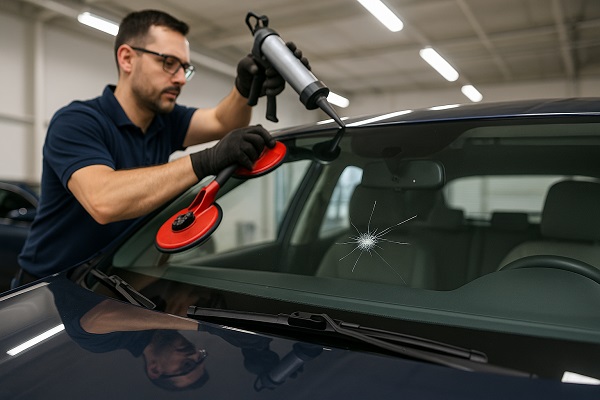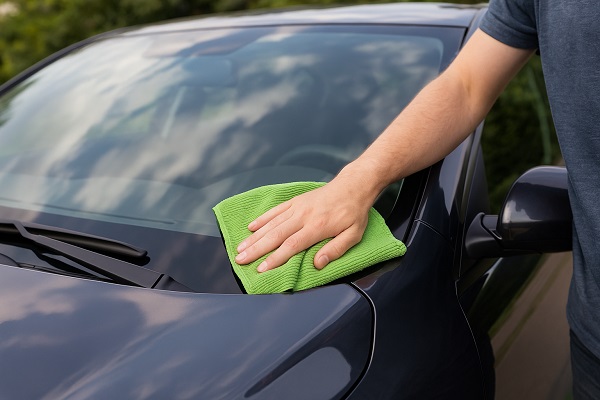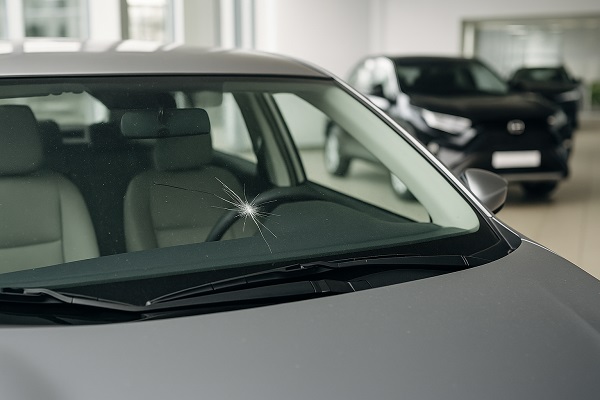When trading in your car, many factors influence its value. Mileage, age, mechanical condition, and even cosmetic appearance. However, one aspect that’s often overlooked is the windshield. Your windshield affects your car’s trade-in value more than most owners realize, and addressing damage before appraisals can make a surprising difference in the offer you receive.
Why Windshield Condition Matters During Trade-In
Dealers and appraisers evaluate vehicles with resale value in mind. A cracked or chipped windshield is an immediate red flag. It suggests neglect, reduces visibility, and could be a potential safety risk. Because of this, even minor windshield flaws can lower your car’s market appeal and trade-in estimate.
A clean, clear, undamaged windshield signals that the car has been well maintained. In contrast, visible cracks or chips raise concerns that the vehicle hasn’t been properly cared for, and dealers often deduct repair costs or more from your trade-in offer.
Common Types of Windshield Damage That Lower Value
While small imperfections may seem harmless, most appraisers take them seriously.
Here are some types of damage that can impact your car’s trade-in value:
- Stone chips – Small, round dings caused by debris that can spread over time.
- Cracks – Any line extending from an impact point, especially those longer than a few inches.
- Pitting – Tiny surface abrasions that scatter light, reducing visibility.
- Edge cracks – Damage along the outer rim of the glass that weakens structural integrity.
- Star breaks or bull’s-eyes – Noticeable patterns that draw attention and often require full replacement.
Dealers know buyers hesitate when they see damaged auto glass. A minor flaw might be repairable, but visible cracks or chips near the driver’s line of sight almost always require replacement before resale.
How Much Does a Damaged Windshield Affect Trade-In Value?
The deduction depends on the severity of the damage and the car’s overall value. For economy vehicles, a cracked windshield could lower your trade-in price by $200 to $500. For higher-end models or luxury cars, deductions can easily exceed $1,000 or more, especially if sensors or cameras are built into the glass.
Dealers often prefer to replace the windshield themselves to ensure quality and warranty coverage, and they factor that cost directly into their offer. Sometimes, they’ll estimate repair costs higher than what you could pay independently, so addressing the issue beforehand is usually more cost-effective.
Why Replacing or Repairing Your Windshield Before Appraisal Pays Off

Fixing your windshield before trading in your vehicle can actually increase your appraisal value and make your car easier to sell.
Here’s why it helps:
- Improved first impression: A flawless windshield makes your car look newer and better maintained.
- Avoid inflated dealer deductions: You can often repair a chip for $50–$100, while a dealer might deduct several hundred dollars.
- Higher buyer confidence: Clear visibility and safety compliance increase resale appeal.
- Prevents spreading damage: Early repair stops cracks from growing, saving you from full replacement later.
In many cases, the small investment in a professional windshield repair yields a better trade-in return and helps you stand out among similar vehicles.
OEM vs. Aftermarket Windshields: Does It Matter for Value?
If replacement is necessary, the type of glass used can make a difference.
OEM (Original Equipment Manufacturer) windshields are identical to factory glass and often include features like built-in sensors, heads-up display areas, or rain detection zones.
Aftermarket windshields, while cheaper, might not perfectly match your car’s specifications.
Appraisers generally prefer OEM glass, especially for newer models or vehicles with advanced driver assistance systems (ADAS). A mismatched or poorly installed windshield could even trigger system calibration issues, potentially lowering the trade-in evaluation.
How Dealers Inspect Your Windshield
During trade-in evaluations, most dealers conduct a visual inspection from both inside and outside the car.
They look for:
- Cracks longer than six inches
- Chips within the driver’s line of sight
- Scratches or hazing that affect visibility
- Improper windshield installation or sealant gaps
- Malfunctioning ADAS components linked to the glass
If your windshield fails inspection, they’ll estimate replacement costs and deduct that from the trade-in offer—sometimes adding an additional buffer to cover potential calibration and labor fees.
Tips to Maintain a Trade-In Ready Windshield

Keeping your windshield in great condition helps protect its contribution to your car’s value.
Maintenance tips:
- Repair chips immediately before they spread.
- Replace wipers regularly to prevent scratching.
- Avoid slamming doors, which can worsen small cracks.
- Park in shaded or covered areas to prevent thermal stress.
- Use high-quality washer fluid to keep visibility clear.
Simple, consistent care demonstrates to appraisers that the vehicle has been responsibly maintained, which often results in a stronger trade-in offer.
Insurance and Windshield Repairs Before Trade-In
Many insurance policies cover windshield repairs with little or no deductible. Comprehensive coverage often includes glass repair or replacement, making it smart to use your policy before visiting a dealership.
Contact your insurer to confirm:
- Whether glass repair or replacement is covered.
- If OEM parts are included in your plan.
- Whether claims impact your rates (most minor glass claims do not).
This allows you to restore your windshield affordably without reducing your trade-in value later.
Can You Trade In a Car With a Cracked Windshield?
Yes, but expect a lower offer. Dealers will still accept a vehicle with a cracked or chipped windshield, but they’ll reduce the trade-in value to offset repair costs. In some cases, they may even send the car directly to auction rather than reselling it on their lot.
To maximize your return:
- Get a professional inspection before the trade-in appointment.
- Repair damage early, even if it seems minor.
- Provide documentation of recent repairs to show maintenance care.
Taking proactive steps helps you retain more of your car’s worth and avoid undervaluation.
A Clear View Pays Off
Your windshield plays a surprisingly large role in determining your car’s trade-in value. A clean, damage-free windshield enhances the overall condition of your vehicle and communicates pride of ownership to dealers. By repairing or replacing damaged auto glass before appraisal, you not only protect your visibility and safety but also ensure you receive the best possible offer for your trade-in.
Content reviewed and published by SLP AutoGlass Editorial Team.

